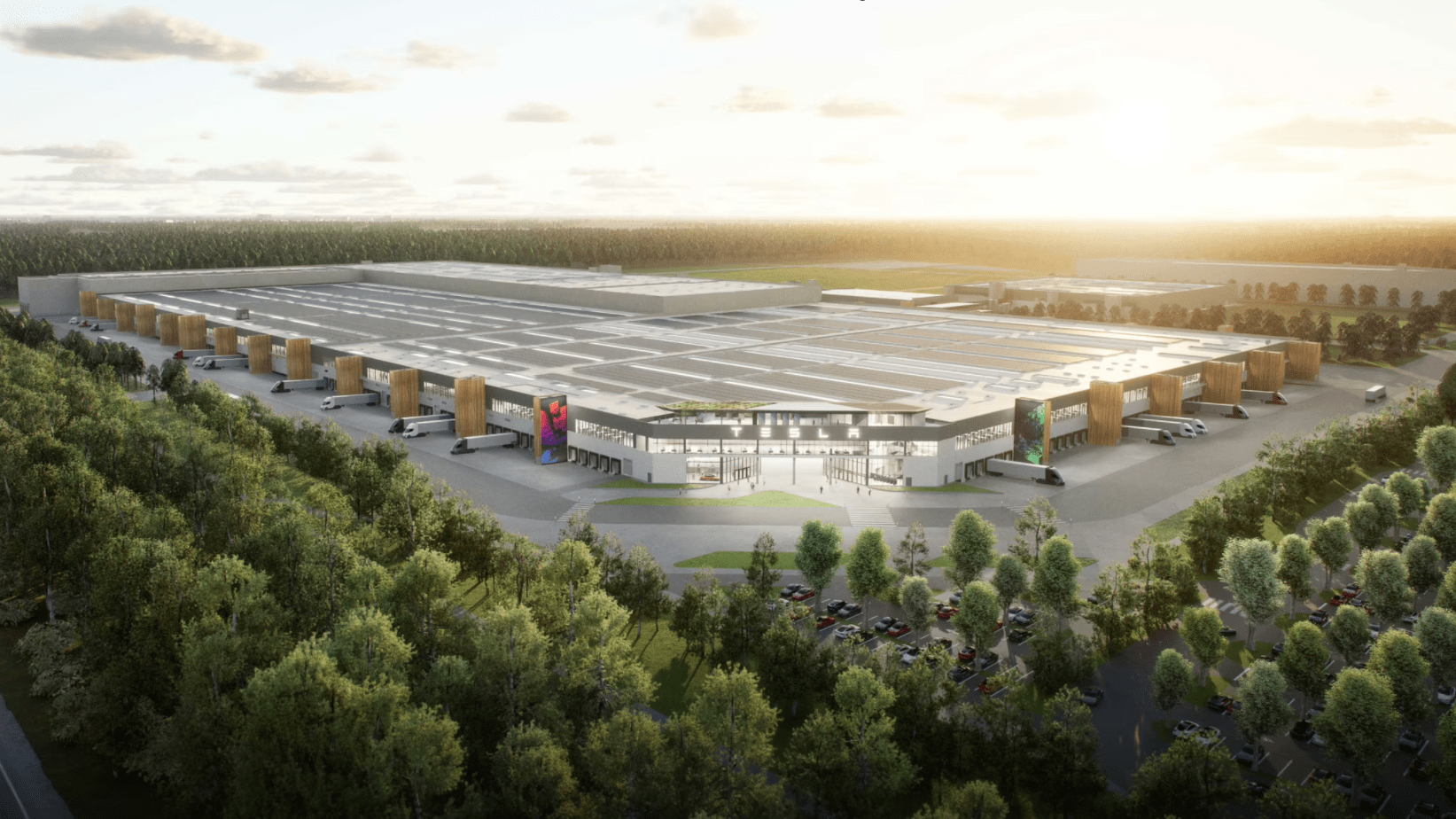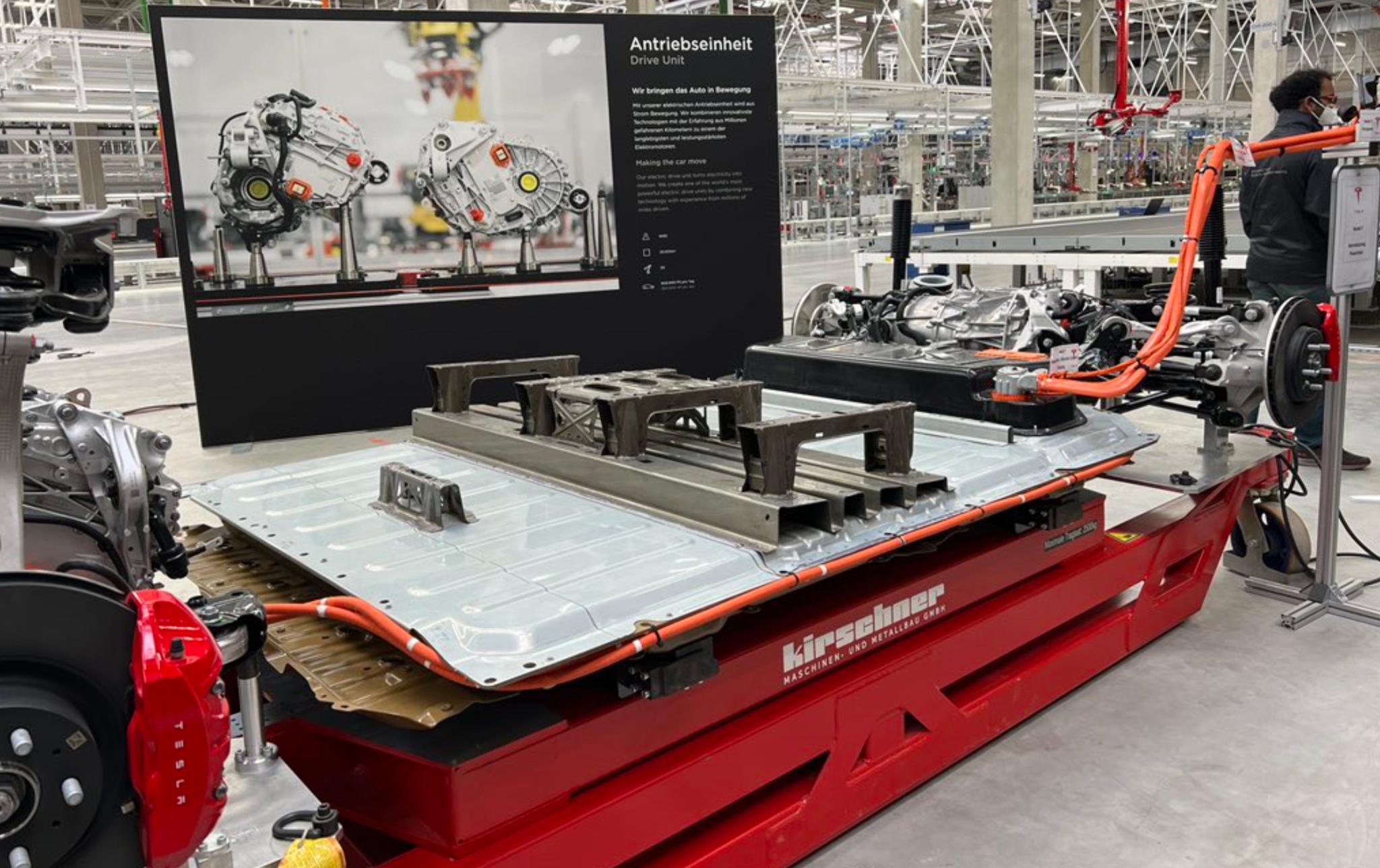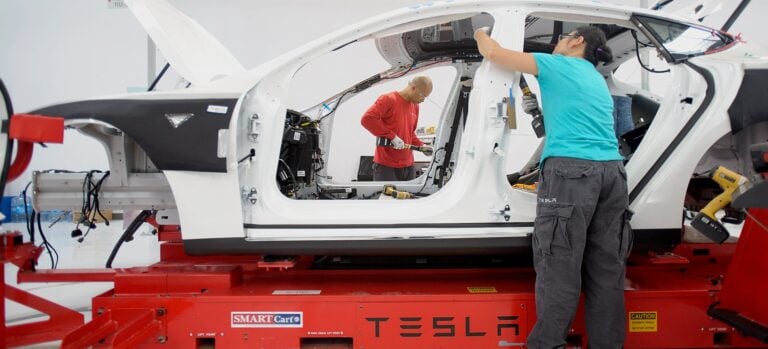
Key Points
- Tesla has withdrawn its state aid application
- Aid from the German Government was expected to total $1.8 billion
- Musk says battery plants shouldn’t be subsidised
American electric vehicle manufacturer Tesla has withdrawn its application for assistance from the German Government to build its latest battery plant.
Currently under construction just outside Berlin in Gruenheide, the gigafactory is set to be Tesla’s European hub for manufacturing, with the European Union approving the manufacturer’s request for state aid in January.
Initially expected to be valued at €1.14 billion (AU$1.8bn), Reuters reports Tesla has now turned away the funding, which was allocated to ‘Important Projects of Common European Interest’ by the European Union, although it still plans to press ahead with the Berlin plant.

A Tesla spokesperson told the publication: “Tesla has informed the Federal Ministry of Economics and the Brandenburg Ministry of Economics… it is withdrawing its IPCEI application for state funding for the battery factory in Grünheide.”
Responding to another Twitter user reporting the news, Tesla CEO Elon Musk said his company’s view is subsidies shouldn’t exist in the industry – not just for EV manufacturers.
“It has always been Tesla’s view that all subsidies should be eliminated, but that must include the massive subsidies for oil and gas,” tweeted Musk.
“For some reason, governments don’t want to do that.”
The new Gigafactory Berlin has seen roughly €5 billion (AU$7.87bn) invested by Tesla and other partners, although it has missed its scheduled opening date, pushed back from July to November and now the first quarter of next year.
It’s been a big year for Tesla, having posted its third consecutive record quarter for July to September, taking in US$1.6 billion (AU$2.15bn) in profit, which was a 480 per cent increase over the year prior.
We recommend
-
 News
NewsTesla's expansion of its gigafactory in Berlin has been delayed indefinitely
New site in Germany will be the production base for European Model Ys
-
 News
NewsAussie billionaire pushes Elon Musk on local Tesla factory
The man responsible for getting South Australia its Tesla battery facility is lobbying for a Gigafactory




